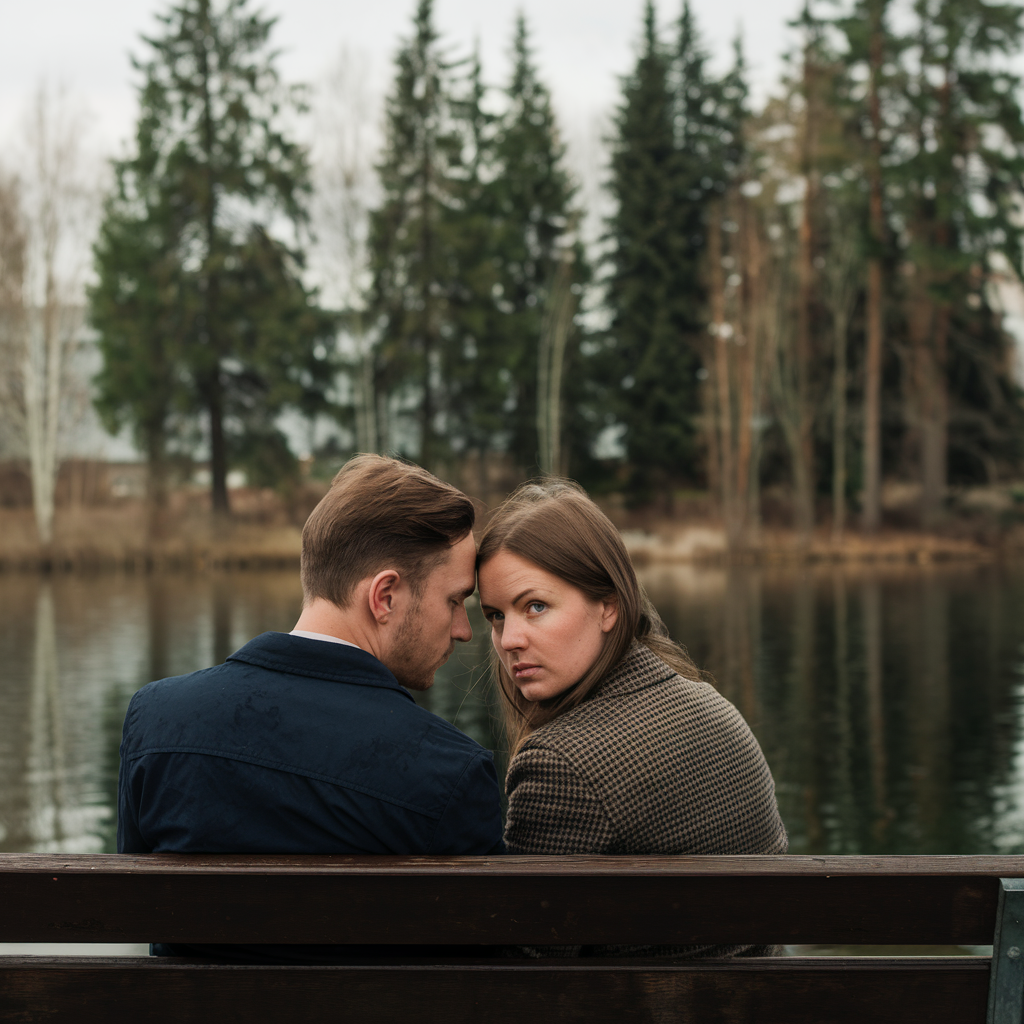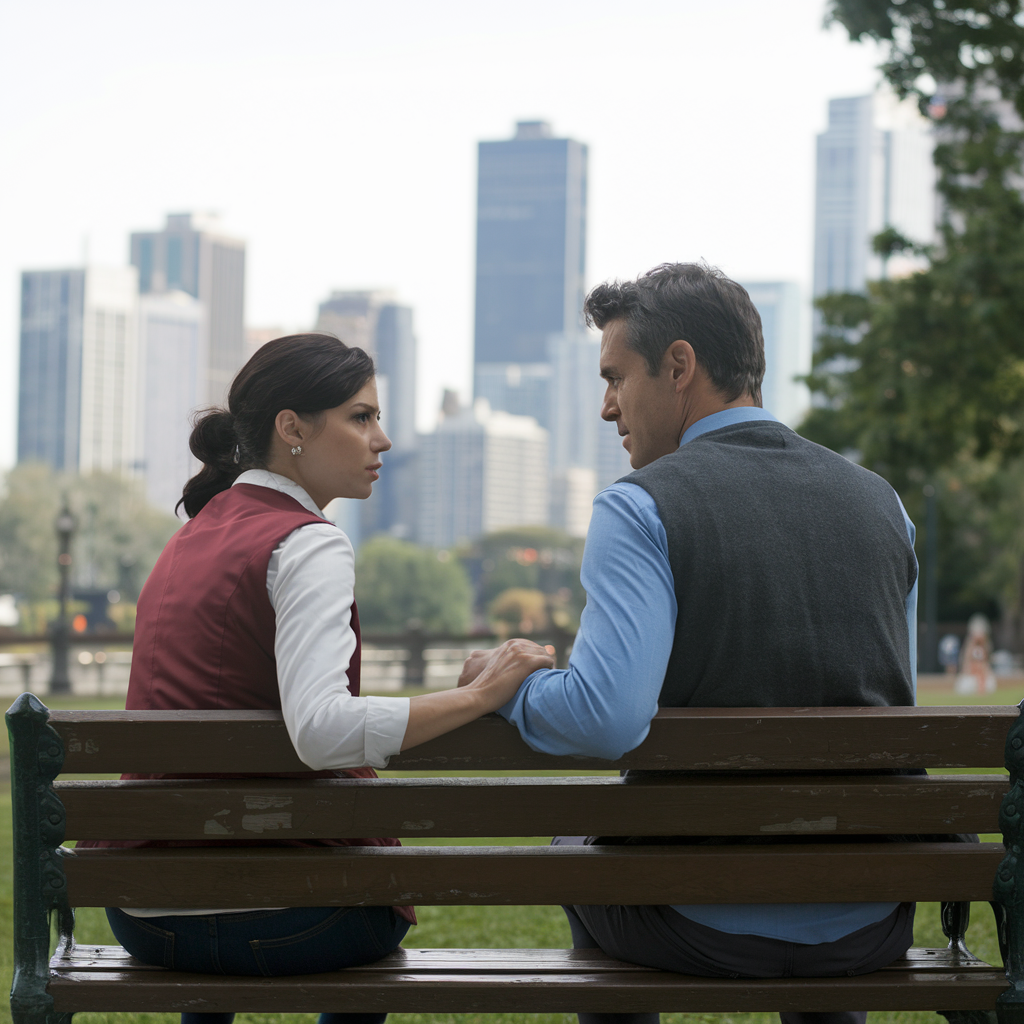Key points
Here are 3 key points about the stages of a relationship:
- The initial stage involves attraction and falling in love. This is when both people feel excited and passionate about each other.
- The middle stage revolves around developing companionship and partnership. Couples settle into more routine habits and deepen their bond during this calm period.
- The later stage focuses on long-term commitment. Staying together requires adapting to change, supporting each other, and working through problems as a team.
Contents
Stage 1: The Honeymoon Phase

The first stage of a relationship is called the honeymoon phase.
There is excitement and newness. You both have an addictively strong appeal to each other. There are no more problems. At this time stage your brain produces feel good chemicals (dopamine and oxytocin) in presence of your new partner. You might feel a jolt of excitement, a little fluttering in your stomach, or just too happy whenever you see them. This stage would typically last from around 6 months to 2 years.
Characteristics of the honeymoon phase
When couples are in love, they only see the good in each other. They would like to spend every moment together. They most often agree. Easy to have sex and affection. Everything just clicks.
Love languages in the honeymoon phase
During the honeymoon phase, the couple tends to naturally use each other’s love language. You shower your partner with gifts and words of affirmation to show how excited you are. Wanting to spend quality time together is a sign of interest from your partner. Everyone feels love, care, and understanding.
Maintaining excitement and novelty
In order to maintain the honeymoon phase in your relationship, make it a point to try something new as a couple. Sign up for a class, take a trip to deeper waters, or find a hobby you can both enjoy. Moreover, create some space for one another so as to create an air of mystery. You tend to appreciate what you don’t have. very important is openness and honest communication; necessary to build trust & intimacy.
Stage 2: Reality Sets In

The infatuation phase no longer prevails and reality sets in. Both people begin seeing each others flaws and imperfections. As they grow up, they start learning to communicate and bargain, resulting in more arguments and differences. To tackle all possible challenges, it becomes important to adapt love languages.
Transitioning from Infatuation to Reality
The relationship will start losing its charm after a while. You become more realistic and practical. Partners become aware of their differences that need working on and not ignoring. To stay attracted to someone takes work.
Challenges and Conflicts
Misunderstandings occur more frequently. The fights we have over small issues hint at deeper ones. Sometimes patience is hard to find. Partners have to learn conflict resolution skills and how to forgive. Going through difficult times helps us build stronger roots.
Adapting Love Languages to New Realities
It’s important to communicate love in ways your partner understands. When partners are aware of each other’s top love languages and often speak in them, disconnection seldom occurs. Make an effort to keep meeting core emotional needs even when the mood is otherwise. Switching up languages as needs change is essential.
Stage 3: Disillusionment

The disillusionment stage is when the relationship begins to lose its steam as infatuation dies down. Partners may start to notice imperfections, differences or assumptions which may cause disappointment. Spotting disillusionment and taking measures to address is very important before it turned in to resentment.
Recognizing disillusionment in relationships
If you’re fighting all the time, don’t want to spend time with your partner anymore, have lost that spark, and only focus on the negatives of your partner then it indicates disillusionment. First, notice a sense of disillusionment before it becomes permanent. Talking to your partner honestly and having a look at yourself will reveal what the issue is.
Coping with unmet expectations
People often get disillusioned because their expectations are not met. In the relationship, its very necessary to openly talk about any expectations and for both people to compromise. When they don’t add up, adjust your expectations and appreciate your partner’s good qualities.
Reassessing love languages for a deeper connection
Disillusionment gives chances to discover each other’s love language. Understanding how your partner wants to be loved can boost communication and intimacy. When partners change behaviors to fit each others love languages, it shows they’re committed and willing to work out any issues together.
Stage 4: Stability and Commitment

Reaching stability means finding a comfortable routine. You both are familiar with one another which helps to relax. Being confident for the period can build plans for future.
Achieving emotional stability
When the couple moves over the initial phase, they seem to be quite sure. You share a history and patterns become familiar. This strong bond makes us vulnerable.
The role of commitment in relationships
Commitment provides a foundation. It says, “I choose you and this relationship.” This helps make the invest – reliance safe. A couple’s shared vision pushes them through.
Consistent application of love languages
Knowing your partner’s love language lets you meet emotional needs quite frequently. Filling your partner’s tank builds closeness. Sharing the same love languages make your relationship stronger.
Stage 5: Deepening Love and Intimacy

During stage five, people really start to get to feel each other, the good and bad. They create space in their lives to support their partner’s dream. Getting to know each other better makes them feel close. It helps them get through a hard life together.
Strengthening bonds through love languages
People feel loved in different ways. Could be helpful gestures, spending time together, saying good things, presents or being touchy. When couples learn about each other’s love language, and use it on their partner, it makes them feel loved and understood. This cements their bond.
Sustaining long-term relationship satisfaction
The secret is choosing each other every day. Making your partner a top priority increases intimacy. Doing new things together helps you grows and keeps the relationship afresh. Staying committed to a shared vision while being open to changes will ensure a lasting happy relationship.
Frequently Asked Questions (FAQ)
What is the golden rule for navigating the different stages of a romantic relationship?
The golden rule for navigating relationships is to communicate openly, meet each other’s needs, and work together to overcome challenges at each stage.
How can understanding the stages of love help strengthen a relationship?
Understanding the natural stages relationships transition through can help couples adapt behaviors to nurture intimacy during exciting phases like the honeymoon stage or overcome difficult phases like the power struggle stage.
What stage of a relationship is comparable to the euphoric honeymoon phase depicted in Bollywood romance movies?
The passionate honeymoon stage early in a relationship mirrors the euphoric romance often depicted in Bollywood movies.
How can knowing the relationship stages prepare someone for future transitions?
Being aware of natural shifts and phases can help mentally prepare someone for transitions in their own relationship journey.
What are some signs a relationship is transitioning from the honeymoon phase to the reality phase?
As exciting infatuation shifts to a grounded reality, signs of change may include resolving differences, adapting behaviors to suit a partner’s flaws and needs, and deepening intimacy through honest communication.
What stage of a relationship is associated with the theme of space exploration and discovery like in Interstellar?
The early, passionate uncertainty stage of a relationship echoes themes of adventure, risk-taking, and new discoveries similar to the movie Interstellar.
What is the relationship stage usually associated with the most challenges and difficulties?
The power struggle stage tends to pose some of the most difficulties as unmet needs, differences, and flaws surface.
What relationship stage mirrors the happy resolution at the end of a romantic comedy love story?
The commitment or acceptance stage of a relationship best reflects the tidy happy ending of partners embracing each other’s flaws like in a romantic comedy.
How are relationships like a dance that requires partners to continually learn new steps?
As relationships transition through phases, partners must actively learn to adapt behaviors to meet evolving needs, like learning new choreography.

I am a free-spirited author with the focus of relationships, travel, mental health, and womanhood. I am still new to the writer scene but am excited for the journey that awaits.